Wall Street and FTSE 100 hit record highs after US inflation report fuels interest rate cut hopes – as it happened
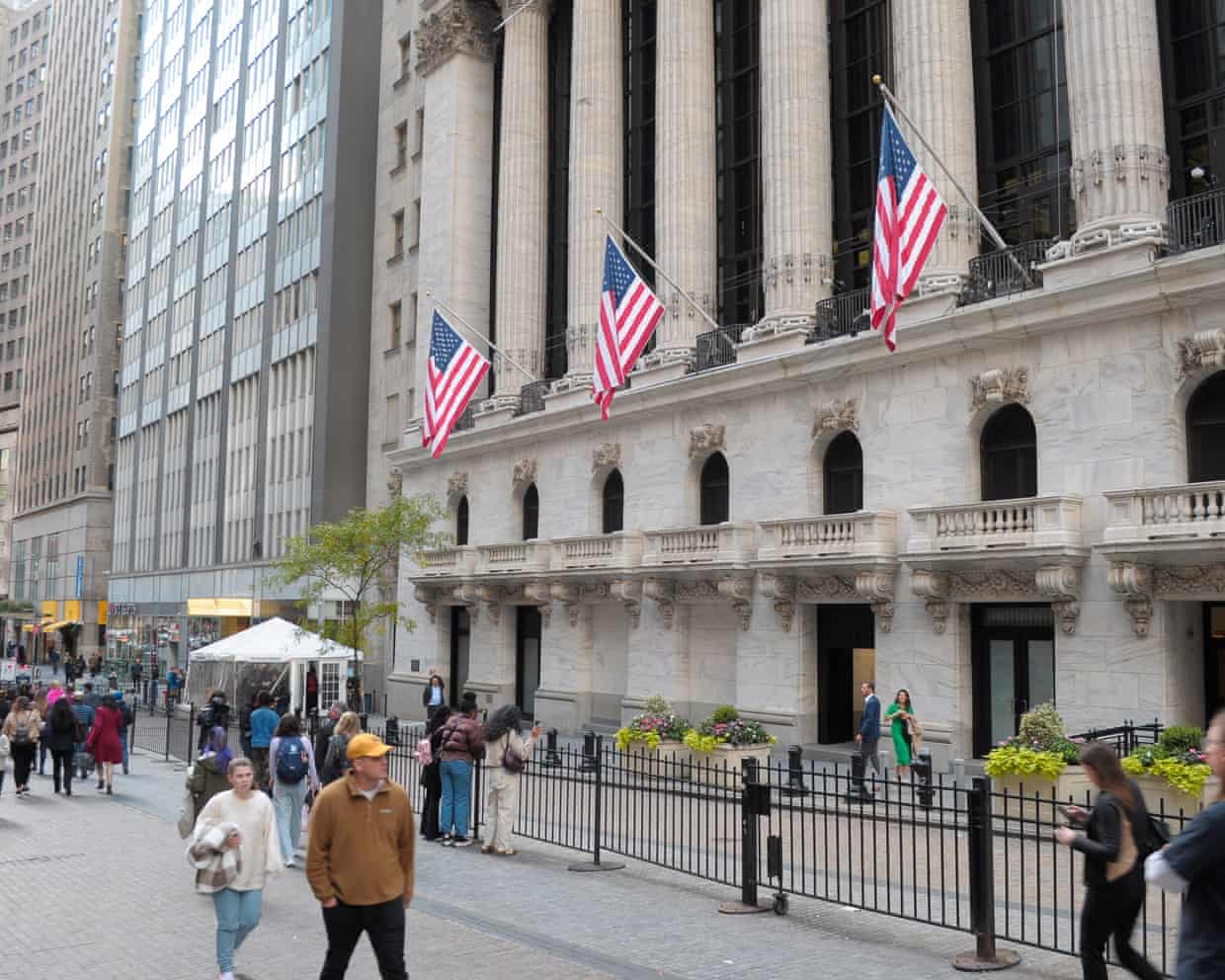
Newsflash: US inflation has risen, but not as much as expected, new delayed economic data shows.The annual US consumer prices index rose to 3% in September, up from 2.9% in August, but lower than the 3.1% which economists had forecast.That means the cost of living is continuing to rise faster than the Federal Reserve’s 2% target, as the US central bank comes under pressure from the White House to cut interest rates faster.
In September alone, prices rose by 0.3%, a slight slowdown after rising 0.4% in August.The data, which had been delayed by the ongoing US government shutdown, also shows that gasoline prices rose by 4.1% in September, while food was up 0.
2%,Time to recap,Stock markets on both sides of the Atlantic have rallied, after a softer-than-expected US inflation report bolstered hopes of cuts to interest rates,America’s S&P 500 index, and the Nasdaq, are both up around 1% after hitting new highs today, as investors celebrated the news that US inflation was lower than expected last month – at 3%, below forecasts of 3,1%.
In London, the FTSE 100 share index has just closed at a record high of 9645.62 points, a rise of 0.7% or 67 points today.Joe Mazzola, head of trading & derivatives strategist at Charles Schwab, explains why Wall Street is expecting rate cuts:“After weeks without any official economic data due to the government shutdown, Friday’s inflation data did little to change expectations for the Fed’s rate cut path, with price increases coming in cooler than expected and reinforcing expectations that the Fed will cut rates next week and again in December in response to a weakening labor market.”In other news:The latest poll of purchasing managers at British firms has found that growth is picking up after the lull in September, spurring hopes that the UK economy is improving.
NatWest bank has reported a 30% jump in pre-tax profits.Sales at UK retailers rose unexpectedly last month to their highest level since July 2022, according to official figures, boosted by tech purchases amid the release of the new iPhone 17 as well as strong online demand for gold.The US economy had made a strong start to the fourth quarter, but bosses are still nervous, new economic data shows.US business activity growth accelerated in October to the second-fastest so far this year, according to a poll of purchasing managers at American companies.S&P Global’s ‘flash’ PMI data shows there was a rise in new business this month, with both manufacturing companies and service firms reporting improvements in output and new work.
Less encouragingly, business confidence worsened, principally reflecting ongoing concerns over the impact of government policies such as tariffs, S&P Global says.Chris Williamson, chief business economist at S&P Global Market Intelligence, explains:“October’s flash PMI data point to sustained strong economic growth at the start of the fourth quarter, with business activity picking up momentum across both manufacturing and services despite some reports of businesses being adversely impacted by the government shutdown.The survey data are consistent with the economy expanding at a 2.5% annualized rate in October after a similar rise was signalled for the third quarter.However, business confidence in the outlook for the coming year has deteriorated further, and is at one of the lowest levels seen over the past three years as companies worry about the impact of policies, most notably tariffs.
Back in the US, consumer sentiment has hit a five-month low as people worry about high prices and the impact on their finances,The University of Michigan’s consumer sentiment index has fallen to 53,6 this month, from 55,1 in September,The survey found a decline in consumer expectations, and their current assessment of the economy.
Surveys of Consumers director Joanne Hsu reports that consumer sentiment was little changed this month.A modest increase in sentiment among younger consumers was offset by decreases among middle-age and older consumers.Current personal finances inched up, while expected personal finances receded.Overall, consumers perceive few material changes in economic circumstances from last month; inflation and high prices remain at the forefront of consumers’ minds.There was little evidence this month that consumers connect the federal government shutdown to the economy.
Only about 2% spontaneously referenced the shutdown during this month’s interviews, compared with the 10% of consumers who did so in January 2019 during that 35-day shutdown.Britain’s stock market has followed Wall Street’s lead, and hit new record levels.The FTSE 100 index of the largest companies listed in London has gained 39 points to hit 9,617 points, as a burst of buying pushed it over the 9,600 point-mark for the first time ever.NatWest bank continues to lead the risers, up 4.7%, after reporting a jump in profits this morning.
Wall Street has hit fresh record highs at the start of trading, as traders welcome the smaller-than-expected rise in US inflation last month.The news that US inflation was “only” 3% in September has pushed up all three major share indices, with investors showing more confidence that US interest rates will be cut.The Dow Jones industrial average, which tracks 30 large US stocks, rose by 265 points at the start of trading to 46,999 points, up 0.57%.The broader S&P 500 share index gained 0.
8%, while the tech-focused Nasdaq is up around 1% – both hitting record highs.Nathaniel Casey, investment strategist at UK wealth manager Evelyn Partners, explains:“September’s inflation report, delayed due to the government shutdown, was slightly softer than expected with a 0.3% month-on-month print, pushing the annual rate to 3.0%.Much of September’s strength came from energy and core goods, with gasoline prices rising notably through the month.
Core inflation also softened to 3.0%.“We continue to see evidence of tariff impacts creeping into the inflation data, with core goods inflation accelerating from 0.3% year-on-year in May to 1.5% year-on-year in September.
Within this.the basket for Apparel (an import sensitive segment) accelerated by 0.7% month-on-month in September, its highest rate since this time last year.“The latest US inflation report surprised to the downside, and despite ongoing tariff uncertainty, it remains consistent with the Fed’s easing path.Core inflation eased while headline inflation rose only modestly, suggesting price pressures are contained.
With labour market softness still the dominant concern, markets continue to price in 25-basis-point rate cuts at both the October and December Federal Open Market Committee meetings,”Here’s our news story on the US inflation report:Economists are welcoming the news that US inflation was lower than feared last month, and predicting it will pave the way for a cut in US interest rates next week,James Knightley, chief international economist at ING, explains:Tariff related inflation will remain a concern in the near term, but it is the jobs market that is becoming the more pressing issue for the Fed with a clear chance that the “low hire, low fire” economy becomes a “no hire, lets fire” story,This jeopardises the “maximizing employment” goal of their dual mandate that could in turn prompt a weaker economy and risk them undershooting the 2% inflation target over the medium to longer term,We continue to look for a 25bp rate cut next week with a further 25bp move in December and 50bp of cuts in early 2026.
Neil Birrell, chief investment officer at Premier Miton Investors, says today’s inflation report is ‘good news’:It’s good to get some firm US economic data and the inflation number was a good one to get.It came in a little softer than expected for September, which is good news, particularly on the core rate.This probably seals a rate cut from the Fed next week and might even lead thoughts towards the view that tariffs are not going to have such a negative impact on inflation as feared, but it’s way too early to conclude that.Nicholas Hyett, investment manager at Wealth Club, agrees that today’s slight inflationary undershoot probably makes more rate cuts just that little bit more likely:“Though lower than analysts had feared, inflation remains above target.We suspect a fair bit of the current inflationary surge is being driven by the effect of tariffs, which increases the cost of imported finished goods as well as raw materials for US manufacturers.
This type of cost-push inflation is particularly hard to deal with because tweaking demand though changes to interest rates won’t affect prices, leaving the Federal Reserve trying to push water up hill in the short term.An optimistic view would be that tariffs represent a one off step up in the price level, with inflation falling away after a year or so.That’s possible, but it relies on the economy avoiding an inflationary wage spiral – which, as the UK knows only too well, is easier said than done.”The index for airline fares increased 2.7% in September, after rising 5.
9% in August – a peak time for flights due to school summer holidays.Digging into the US inflation report, we can see that housing pressures eased.The shelter index (a measure of the cost of housing) rose by 0.2% in September, while the index for owners’ equivalent rent rose by just 0.1% in the month, the smallest 1-month increase in that index since January 2021.
Core inflation across the US has fallen, in a boost for households,Today’s inflation report shows that the “all items less food and energy index” rose by 3% in the year to September, down from 3,1% in August,That is an encouraging sign that inflationary pressures are not accelerating, as the US economy responds to the Trump trade war,

Tell us: have you lived in temporary accommodation in the UK with children?
More than 172,000 children were living in temporary accommodation in England at the end of June, according to new quarterly official figures released last week.That represented an 8.2% rise on the same period last year. There are now more than 130,000 households households living in temporary accommodation in England, the figures showed.Matt Downie, chief executive of Crisis, said: “Tragically we have now become totally accustomed to seeing record levels of children growing up in temporary accommodation

Posh, proud and impossible to ignore: the incredible life of Annabel Goldsmith
Born in the 1930s, the former Lady Annabel Vane-Tempest-Stewart flourished in a world that celebrated aristocratic rule-breakers. What does her story tell us about how Britain has changed?If the sitting Marquess of Londonderry died tomorrow, and in so doing bestowed a ladyhood on his 15-year-old granddaughter, would you ever know? Would you be able to find the great houses of Britain on a map, and connect them to their owners? It wouldn’t be true to say that the press has stopped covering the aristocracy, since the Telegraph diligently covers the great estates, but the discussion now comes framed by the idea of meritocracy, which is objectively pretty ridiculous. So the Hon Nick Howard told the Telegraph a fortnight ago, “If my son wants to take over [Castle Howard], he’ll have to pass an interview,” while other great estate owners stress their role as rewilders, ecowarriors or, at their most traditional, conservationists. These days, if you’re proud of heritage simply because you own it, you’re expected to keep quiet about it.Lady Annabel Goldsmith, who died at home on Saturday at 91, lived through an era, by contrast, in which aristocracy and wealth were extremely public

Prostate cancer drug that can halve death risk to be offered to thousands in England
Thousands of men with advanced prostate cancer in England are to be offered a drug that can halve the risk of death.In guidance published on Friday, the National Institute for Health and Care Excellence (Nice) gave the green light to darolutamide, which attacks the disease by starving cancer cells and has fewer side-effects than existing treatments.At least 6,000 men a year with metastatic hormone-sensitive prostate cancer will get access to the novel treatment, also known as Nubeqa and made by Bayer, on the NHS.Darolutamide, taken as two tablets twice daily, works by blocking hormones fuelling cancer growth. The treatment is delivered alongside androgen deprivation therapy (ADT), a hormone therapy that lowers testosterone levels
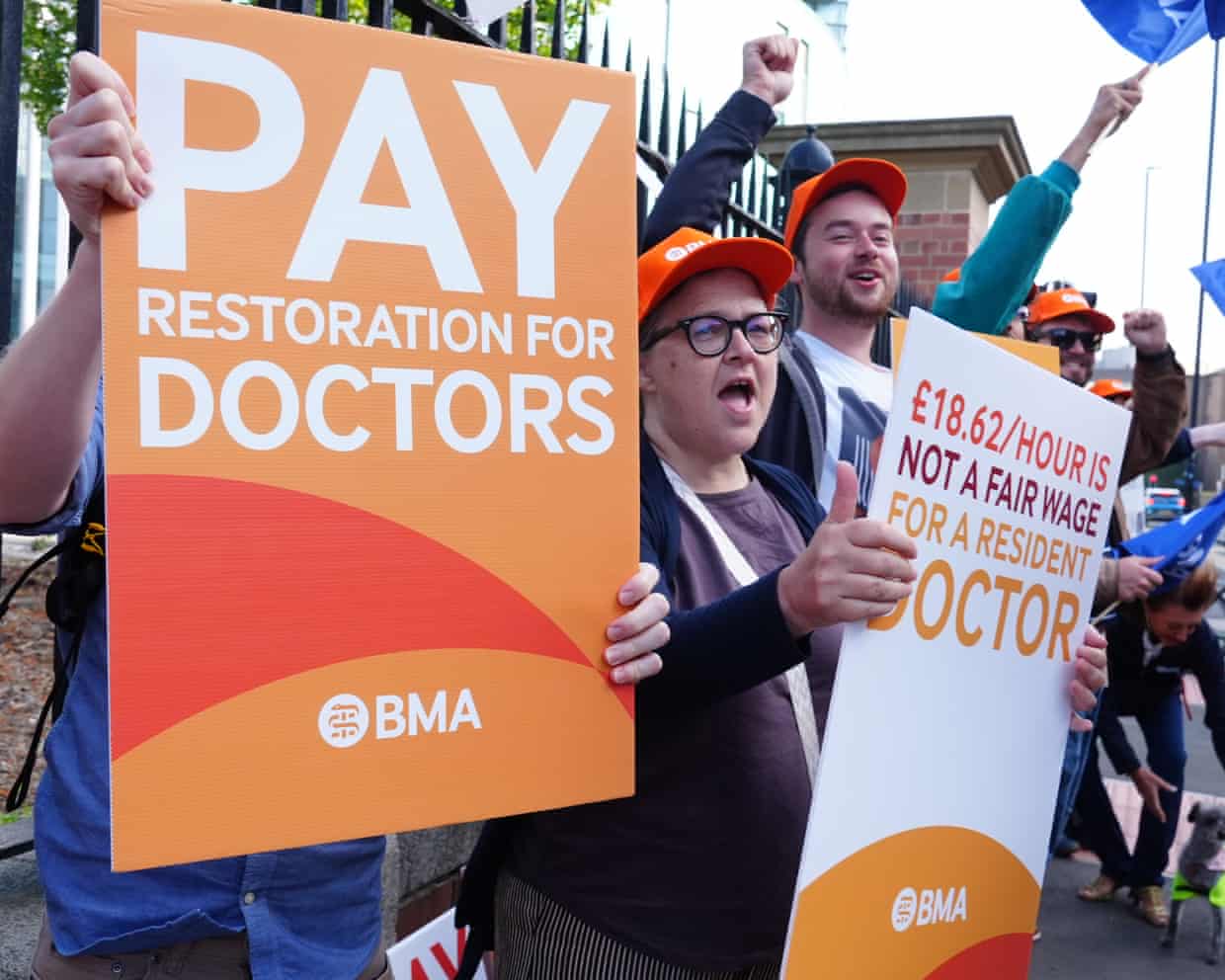
Resident doctors in England to go on strike for five days next month
Resident doctors in England will strike again next month – the 13th time since 2023 – a decision NHS bosses say is “the last thing the NHS needs”.Hospital chiefs predicted that the stoppage would make it harder for the NHS to manage the increase in winter viruses and hamper its efforts to tackle the 7.4m waiting list backlog.The British Medical Association (BMA) and Wes Streeting, the health secretary, blamed each other for the five-day strike, from 7am on 14 November to 7am on 19 November.Dr Jack Fletcher, the chair of the BMA’s resident doctors’ committee (RDC), said on Thursday that the strike was a response to Streeting offering only “vague promises” after the union’s “reasonable” demands on pay and career progression

Challenges of council restructure in Kent | Letter
Your report on the problems in Kent county council stresses the conflicts in the ruling Reform UK party over the budget (‘Suck it up’: leaked video exposes bitter infighting at Reform UK’s flagship Kent council, 18 October). These squabbles must not obscure the very real problems that the county faces in meeting government requirements to restructure into three or four new unitary councils.The new pattern of unitaries is likely to divide wealthy West Kent from East Kent, which has the highest concentration of social need and the least capacity to raise council tax. The level of debt that unitaries will inherit from the existing district councils makes things much worse – virtually zero in West Kent and probably near £500m in East Kent. Kent county council’s additional £750m debt makes matters worseThe issues of social need, the capacity to invest in good-quality jobs and how to address the debt crisis must be at the forefront of debate about how we go forward
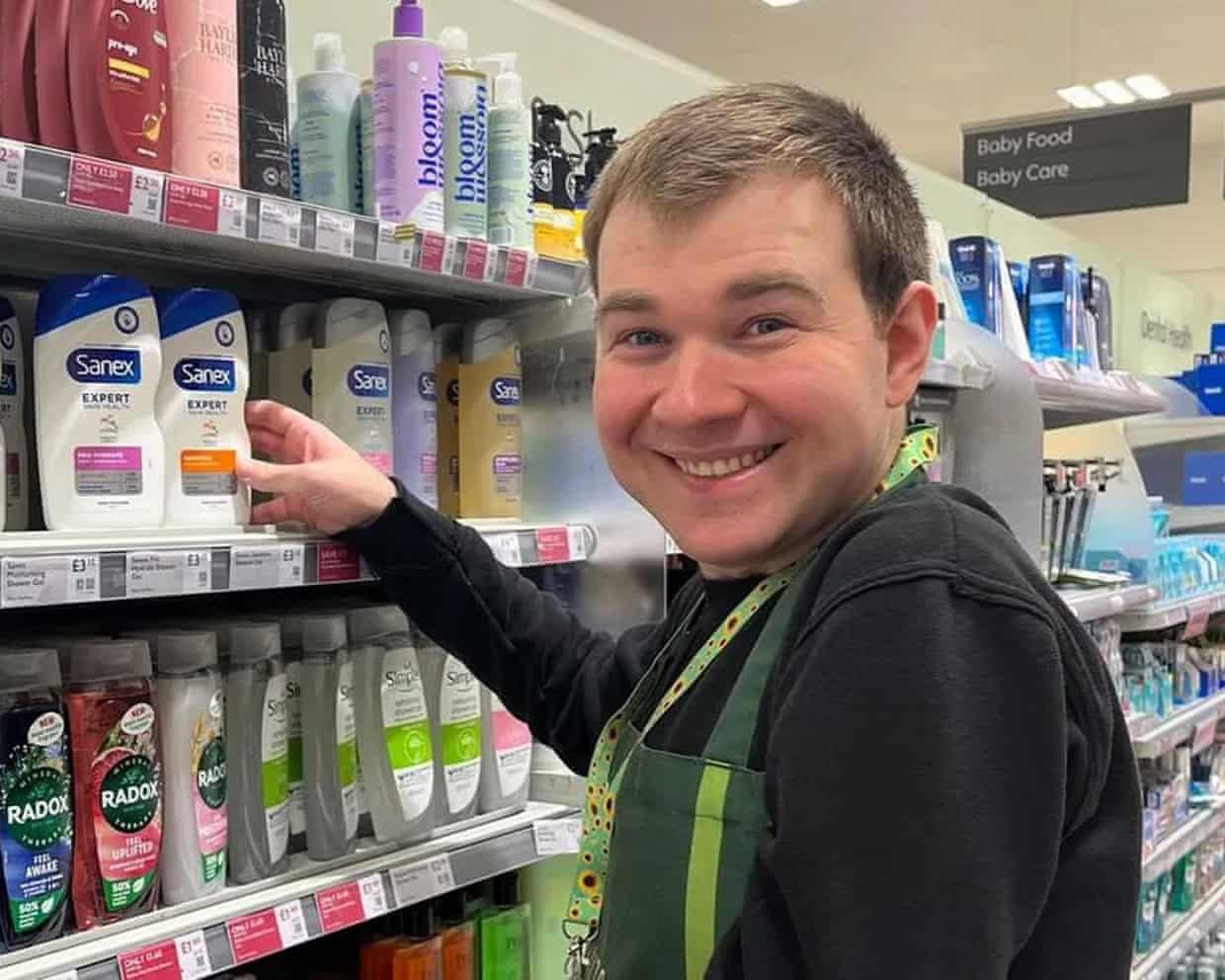
Asda hires autistic man who was let go by Waitrose after years of volunteering
An autistic man who was let go as an unpaid shelf stacker at a Waitrose supermarket despite volunteering there for years has been offered a job at Asda.Tom Boyd, 28, had worked in the Cheadle Hulme Waitrose store since 2021 with a support worker, as his mother, Frances Boyd, said the role gave her son “a sense of purpose and belonging”.In a Facebook post last Friday, she wrote that her “autistic son has been treated so unfairly, and we feel deeply let down” by Waitrose. She said the supermarket declined to give him a paid job despite him offering more than 600 hours to the store “purely because he wanted to belong, contribute, and make a difference”, and that he was a well-liked member of the team by his co-workers.Boyd added that they had only asked for a few hours of paid work “not as charity, but as recognition for all the time, effort, and heart” Tom had given to the store, and that she and her family were “shocked by how dismissive and cold” the management’s response was, and that Tom was asked not to return

Timely assurance from Lear’s Kent | Letters

The Guide #214: Sleep-inducing songs and tranquilising TV – the culture that sends us to sleep (in a good way)
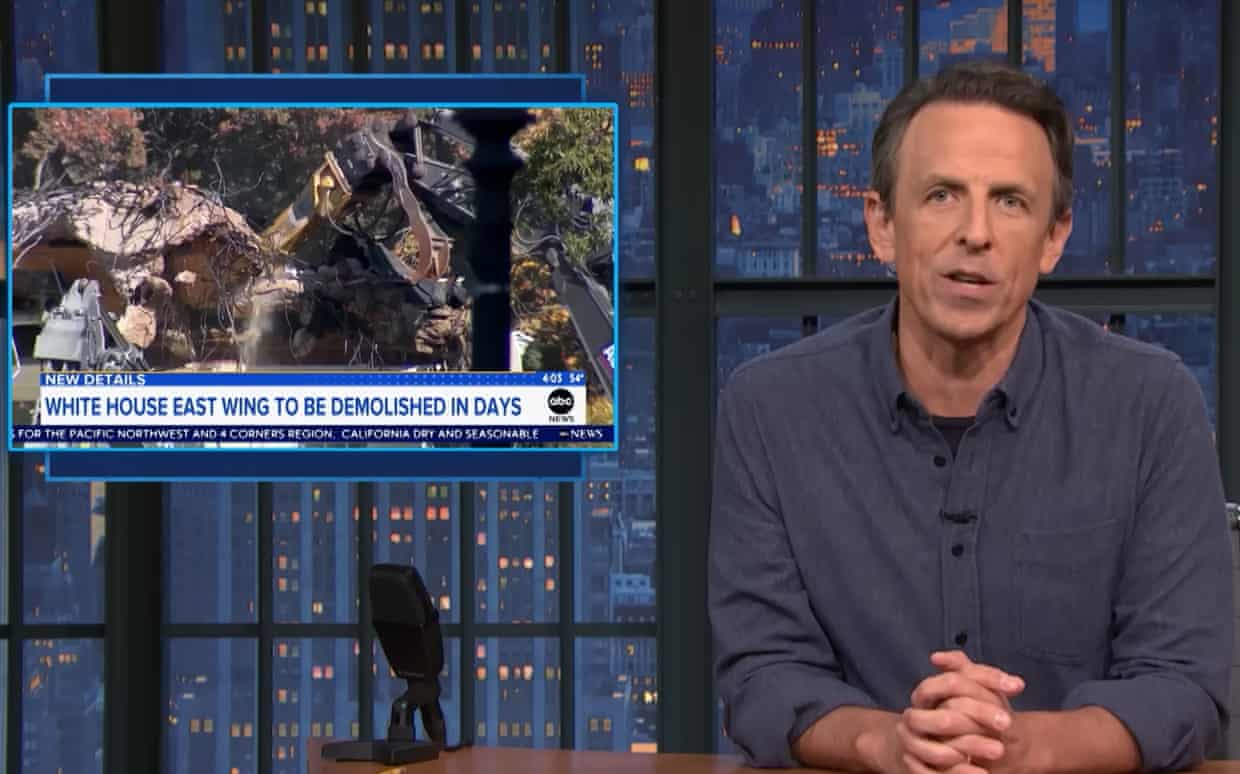
Seth Meyers on Trump’s White House ballroom: ‘This couldn’t be any more of a bait and switch’

Seth Meyers on Trump’s White House demolition: ‘This is insane’
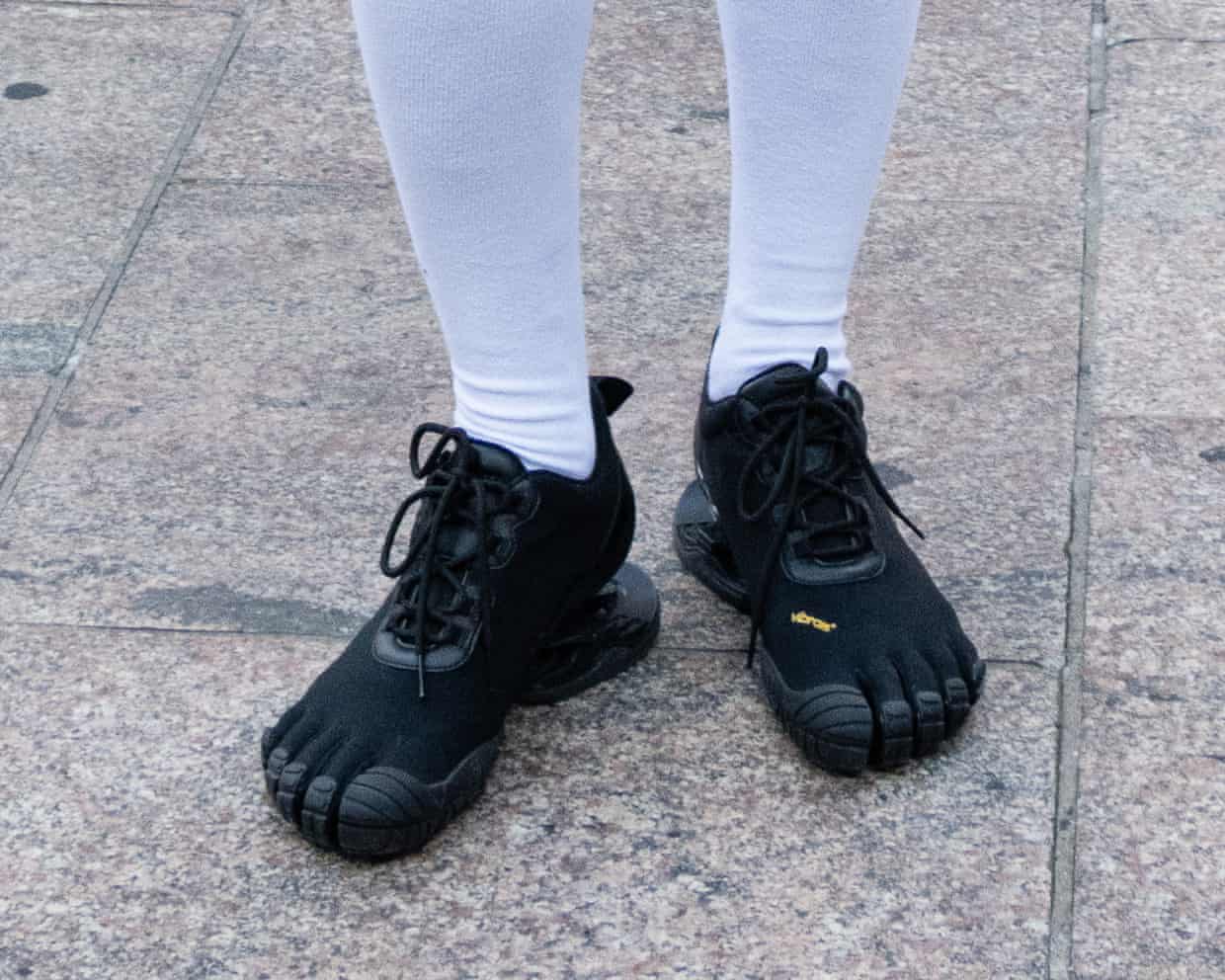
Toe-curling fashion: how did toe shoes become so popular?
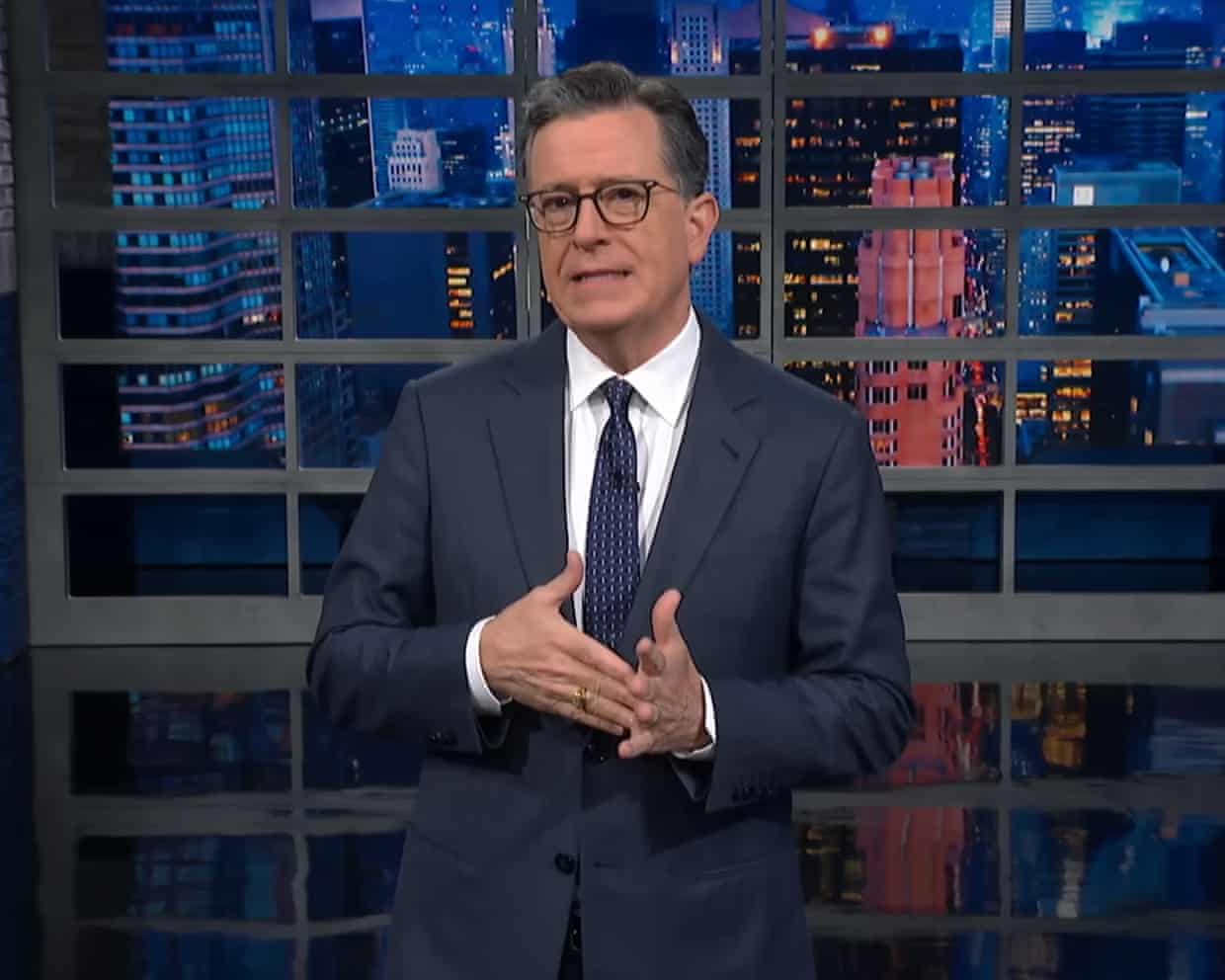
Stephen Colbert on Trump’s White House East Wing demolition: ‘So deeply unsettling’